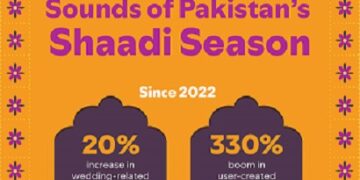Introduction: A Bold Statement from a Popular Actor
Pakistani television and film star Humayun Ashraf, known for his versatile performances and strong screen presence, has sparked a fresh debate with his candid remarks about women’s inclination toward financially stable men. The actor, who has appeared in numerous hit dramas and films, shared his unfiltered thoughts during a recent interview, shedding light on what he perceives as a practical and realistic aspect of relationships in today’s materialistic world.
In a media landscape where celebrities often avoid discussing sensitive societal topics, Humayun’s openness about the link between love and money has drawn significant attention, with reactions ranging from agreement to criticism. His comments challenge the romanticized ideal of unconditional love, presenting instead a grounded perspective rooted in the realities of financial security and stability.
“Love Has Become Linked to Materialism”
In his interview, Humayun Ashraf did not hold back when addressing what he sees as a shift in how love and marriage are perceived in contemporary society.
“Today, love has become related to materialism. It has become based on calculation and practical thinking—and this is absolutely true,” he said with conviction. “Marrying a stable person is a realistic attitude, and there is nothing wrong with it. If I don’t have money, anyone can reject me, and that’s how it should be.”
By framing financial stability as a logical factor in relationships, Humayun challenged the traditional romantic notion that “love conquers all.” He argued that, while emotions and compatibility are important, financial resources are an undeniable part of building a secure and sustainable future with a partner.
Using Family as an Example: Advice to His Sister
To explain his stance further, Humayun gave a personal example involving his sister, Maria.
“If Maria asks me about a guy who is not earning, I will give her practical advice to think carefully before getting married,” he revealed. “Similarly, if a girl rejects me just because of money, I won’t feel bad, because that’s her thinking. It’s perfectly fair, because if I were looking at a relationship for my sister or cousin, I would also look at whether the guy is earning or not.”
This example underscores Humayun’s belief that financial considerations are not signs of greed, but rather a reflection of responsible decision-making, especially in a country like Pakistan where economic instability can deeply affect family life.
The Harsh Reality: Financial Stability in Pakistani Marriages
Humayun’s comments resonate with the lived experiences of many in Pakistan, where economic uncertainty, rising inflation, and limited job opportunities have made financial stability a crucial factor in marital decisions. In traditional South Asian societies, a man’s ability to provide for his family has historically been seen as a core requirement for marriage.
Even in more modern, urbanized circles, where love marriages are more common, financial independence and stability often play a deciding role. Humayun’s frankness brings to the surface a reality that many people acknowledge privately but hesitate to discuss openly.
Materialism vs. Realism: Where Is the Line?
Humayun made it clear that he does not equate women’s preference for financially stable men with shallow materialism. Instead, he sees it as a matter of security and practicality.
“It is often not possible in practical life to ignore financial status when deciding on a relationship,” he emphasized.
This viewpoint aligns with the idea that love, while important, cannot thrive in an environment of constant financial stress. Relationships often face pressure when economic needs are not met, leading to disputes, dissatisfaction, and in some cases, separation.
Public Reactions: Agreement and Criticism
Humayun’s remarks have received mixed reactions on social media. Many users praised his honesty, arguing that his statements reflect the practical realities of life in Pakistan. Supporters say that acknowledging financial factors in relationships can help prevent unrealistic expectations and ensure stability.
On the other hand, some critics accused him of normalizing transactional relationships and undermining the emotional foundation of love. They argue that placing too much emphasis on money risks reducing marriage to a financial arrangement rather than a partnership based on trust, respect, and mutual support.
Cultural and Historical Context: Love and Money in South Asia
The connection between marriage and financial status is not new in South Asian cultures. Dowry traditions, property considerations, and family status have long been integral to marital negotiations. While urbanization and modernization have changed some aspects of matchmaking, financial readiness remains a priority for most families.
Historically, in Pakistan and neighboring countries, men were expected to be sole breadwinners, while women often took on domestic roles. While this dynamic has evolved, especially with more women entering the workforce, societal expectations still largely place financial responsibility on men. Humayun’s statement reflects this cultural backdrop.
Celebrity Influence: Why Humayun’s Words Matter
As a well-known public figure, Humayun Ashraf’s words carry weight beyond casual conversation. Actors and entertainers in Pakistan often influence public opinion, not just through their roles but through the personal values they express in interviews.
Humayun’s willingness to speak openly about a socially sensitive topic could inspire more honest conversations about the role of money in relationships—conversations that could lead to better understanding between partners before marriage.
Balancing Financial Stability and Emotional Compatibility
While Humayun’s views highlight the importance of financial stability, experts in relationship counseling stress that it should be balanced with emotional compatibility, shared values, and mutual respect. Money may provide comfort and security, but without trust, communication, and affection, relationships can still fail.
A healthy approach, they suggest, is to see financial readiness as one of several important factors in marriage, alongside emotional maturity, life goals, and personal character.
Conclusion: A Bitter Truth or a Necessary Reality?
Humayun Ashraf’s statement about women’s tendency toward wealthy men has stirred debate because it challenges the romantic ideal that love is purely emotional. His belief that financial stability is a fair and realistic basis for marriage decisions reflects a societal truth that many acknowledge but hesitate to vocalize.
In a country where economic pressures are high and financial security can make the difference between a peaceful or stressful married life, Humayun’s words may be less a “bitter truth” and more a candid acceptance of reality. Whether one agrees or disagrees with his perspective, the discussion he has sparked could lead to more practical and transparent conversations about relationships in Pakistan’s changing social landscape.

























